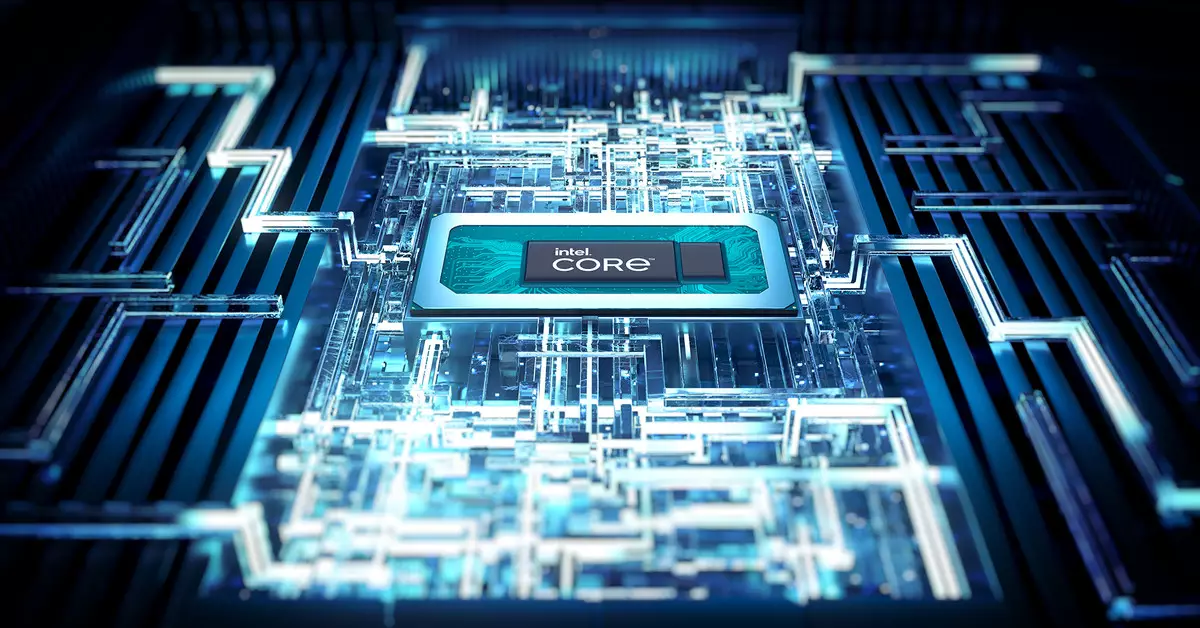After months of speculation, Intel has finally provided clarity on the safety of its laptop chips in regards to the Vmin Shift Instability issue that has been affecting its flagship desktop chips. The company has confirmed that its 13th and 14th Gen laptop chips are not susceptible to this instability problem, putting to rest concerns raised by game developer Alderon Games last month. Intel spokesperson Thomas Hannaford has assured users that the laptop chips are unequivocally not impacted by the issue, offering a sigh of relief for those who rely on these processors for their computing needs.
In addition to the good news about the laptop chips, Intel has also stated that many desktop chips are not affected by the specific voltage issue known as Vmin Shift Instability. The company specifically mentions that 13th and 14th Gen i5 chips that are not part of the K-series, i3 chips, and Xeon chips are safe from this problem. This announcement comes on the heels of a recent warranty extension for affected Intel Core 13th and 14th Gen desktop processors, reassuring users that their systems are not at risk of experiencing the same issues plaguing certain desktop chips.
Unaffected Products List
Intel has provided a list of products that are confirmed to be unaffected by the Vmin Shift Instability issue. These include 12th Gen Intel Core desktop and mobile processors, Intel Core 13th and 14th Gen i5 (non-K) & i3 desktop processors, Intel Core 13th and 14th Gen mobile processors (including HX-series processors), Intel Xeon processors, Intel Core Ultra (Series 1) processors. This list gives consumers a clear picture of which products are safe to use without having to worry about potential instability problems caused by voltage issues.
While most Intel Core 13th and 14th Gen desktop processors are not affected by the Vmin Shift Instability issue, Intel recommends that users ensure their systems are running the latest BIOS updates. By following the guidelines provided by Intel, users can safeguard their systems against any potential risks associated with the instability problem. It is crucial for users to check for BIOS updates through Intel’s Compatibility Tool or their motherboard manufacturer’s website to stay ahead of any potential issues that may arise.
Looking ahead, Intel has reassured users that its future chips will be protected against the Vmin Shift Instability issue. This means that upcoming products, including those set to be released on the Arrow Lake and Lunar Lake architectures this fall, will be designed to prevent any issues related to instability caused by voltage shifts. By taking proactive measures to address this concern in its future products, Intel aims to provide consumers with peace of mind when investing in its latest technologies.
Warranty Extension and Replacement
For users who may have already experienced damage to their i9, i7, or K-series i5 desktop CPUs, Intel is offering a two-year warranty extension to cover any potential issues related to the Vmin Shift Instability problem. If your CPU is already damaged, it is important to contact Intel or your PC builder immediately to seek a replacement. Most PC makers have pledged to honor the warranty extension, ensuring that affected users can receive the necessary support to address any issues they may encounter.


Leave a Reply